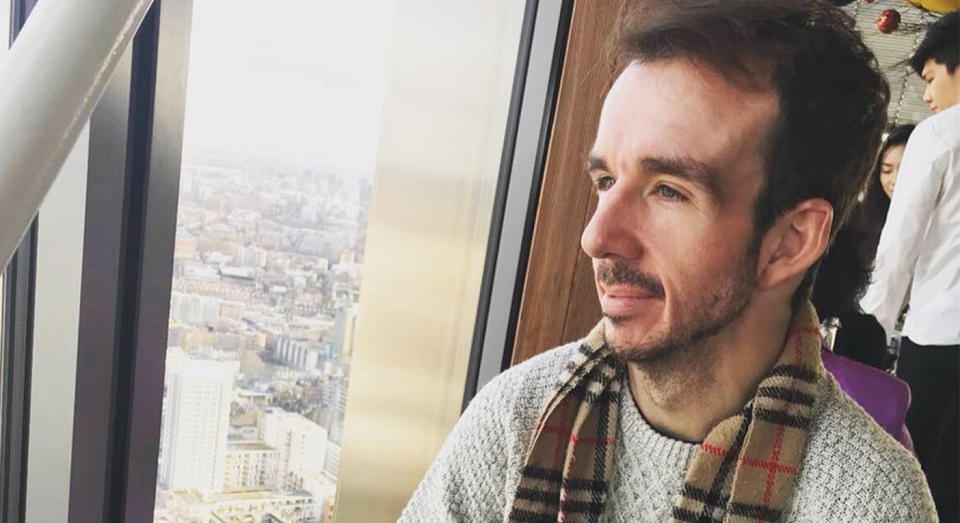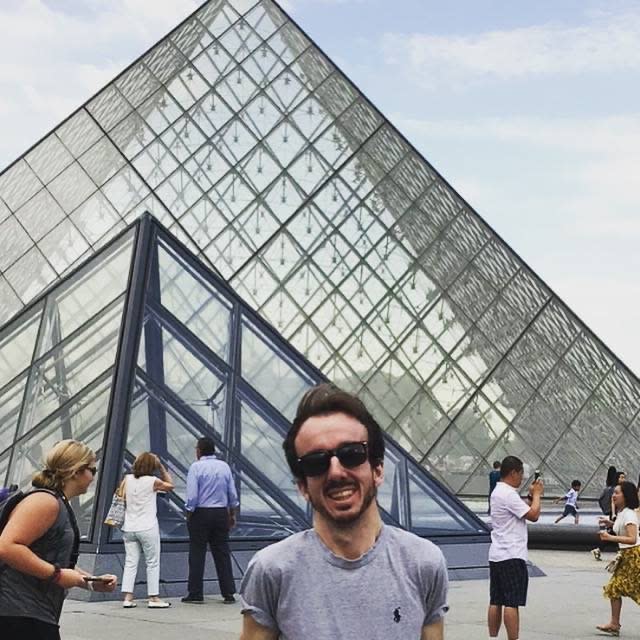Meet the man with a disease so rare he's 'the only UK patient'

A man has a disease that is so rare, he is thought to be the only patient in the UK.
David Rose, 31, from Cambridge, has occipital horn syndrome.
With a prevalence of less than one in a million, around 20 cases have been reported globally.
The genetic condition is thought to come about due to reduced copper levels in the body, with common symptoms including sagging skin, coarse hair and loose joints.
For Rose, the disorder “affects everything”.
Read more: Toddler thought to be the only person in the world with an ultra-rare ageing disease
Speaking ahead of Rare Disease Day on Saturday, he told Yahoo UK: “Nothing is quite right, every kind of organ doesn’t work properly.”
Rose was 18 months old when he was referred to Great Ormond Street Hospital with recurrent bladder infections. This was later found to be a result of the organ not emptying properly.
He was diagnosed with Ehler-Danlos syndrome, a group of disorders that affect connective tissue.
With no set treatment, Rose’s health was managed via physio and occupational therapy.
The “constant battering of infections” even forced doctors to remove one of his kidneys 10 years ago.
It was not until Rose reached his mid-twenties that medics realised he “didn’t fit Ehler-Danlos’ criteria” and he was diagnosed with occipital horn syndrome.
With no cure, his receives the same treatment as he did when doctors thought it was Ehler-Danlos.
“There’s no miracle tablet I can take,” said Rose.
“There is no perfect solution.”
Rose still endures bladder infections, forcing him to have a catheter for the past 24 years.
Read more: New Research Uncovers the Toll Rare Diseases Take on Relationships
Day-to-day, he copes with joint pain and often “unmanageable fatigue”.
“The pain I can become used to,” he said.
“I can try and use painkillers.
“But I have unmanageable fatigue. It’s overwhelming and I can’t move.”
Rose, who usually walks with a stick, often relies on his loved ones to “help out”, with some days being worse than others.
“My health cycles,” he said.
“It can be okay for a bit, then it’s awful, then it levels off. It happens randomly.”

Rose has between three and four hospital appointments a month, and is occasionally rushed to A&E when the pain gets too much.
As well as physio and occupational therapy, he relies on antibiotics for the infections and other drugs to control his bladder spasms.
“It’s a bit of a concoction,” he said.
“I take about 20 tablets a day.”
Despite all he endures, Rose works hard to live as “normal” a life as possible.
“Life is short regardless,” he said.
“Now I know what it is and there’s no cure, I try and go about my life as much as I can.”
Read more: Chiesi Global Rare Diseases Recognises Rare Disease Day
Rose, who has been with his girlfriend two years after meeting online, hopes to one day have children.
“This is genetic,” he said. “If I had children there would be a risk.
“I would like to have children, but it could have a knock-on effect on my health.”
The way occipital horn is passed down means Rose inherited the disorder from his mother, despite no one in their family ever showing symptoms.
“It’s so rare you never would have tested for it in newborn screening,” he said.
The syndrome’s rarity means doctors are unable to give Rose much of an idea of what his future may look like.
“I read the oldest person with this was 57,” he said.
“But there’s not enough people that have it to give a fair reading.
“There could be 5,000 people misdiagnosed.”
One in 17 people are said to be affected by a rare disease at some point in their life, defined as a condition that affects fewer than one in 2,000 people.
Rose is taking part in Takeda’s ‘I am number 17’ campaign.


